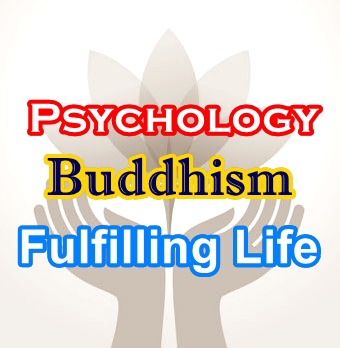When we feel criticised or misunderstood, the urge to prove ourselves to others can well up at times.
We get caught up in a painful impulse of wanting to say things back at the person who criticises us.
We end up rehearsing an endless story about who is right or wrong and why.
We want to prove that “I am right and you are wrong.” Whether we have a chance to say something back, or can’t say anything at that time, the urge to prove ourselves to others can possess us sometimes.
From a psychological point of view, what does the need to prove ourselves reflect about ourselves?
What is our intention when we try to prove ourselves?
What are we trying to get out of the action?
On a surface level, the person who tries to prove themselves appears to rationally justify themselves and point out why the other person is wrong.
But on a deeper level, what often happens is that the person tries to do so because they just cannot bear a sense of being criticised as it makes the person feel unworthy.
The need to prove ourselves to others often stems from a moment of feeling vulnerable, unaccepted, undermined, or misunderstood.
There is a deep sense of unworthiness behind it.
We don’t want to feel a sense of unworthiness or we don’t want to accept that we are unworthy, the urge of wanting to prove ourselves tries to protect us from the most vulnerable feeling of unworthiness.
The reason why we want to prove ourselves when feeling criticised or misunderstood, we are deep down not confident of ourselves.
When we rely on others for validating our self-worth, we get easily hurt and vulnerable.
We don’t need other people to validate ourselves if we already feel worthy and enough.
When we notice the impulsive urge to justify ourselves welling up, there are two useful things we can do.
- Notice a feeling and name it
- Allow yourself to sit with a feeling and say to yourself “I am feeling xxx and that’s OK”
These two steps are simple but very powerful. We need to investigate what lies behind the urge to justify ourselves.
It cultivates a deep sense of self-acceptance of whatever we experience without judgement.
Self-acceptance is a foundation of self-confidence.
The more accepting we become of ourselves, the more we can trust our experience and stand our ground.
In this process of developing self-awareness and self-acceptance, we will be able to break the chain of reactivity of negative emotions and choose a new or different way to respond to the situation.
As long as we are OK in our hearts, others’ opinions and behaviours doesn’t matter much to us.
When we feel the urge to prove ourselves, we need to communicate with ourselves first, rather than trying to communicate with the other person.
All we do is to be with our vulnerable parts of us which are hurting and afraid, and need to be nurtured.
This is the act of compassion for ourselves.
It takes a conscious practice of cultivating our self-worth when we feel criticised or rejected.
Prove ourselves to ourselves, not others.







